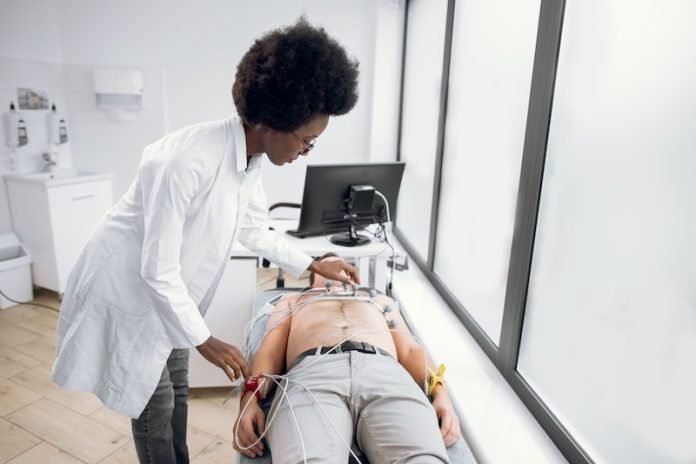
Imagine a world where the diagnosis of heart attacks is as swift as lightning and as accurate as a Swiss watch. A world where the fear of misdiagnosis is a thing of the past.
A world where artificial intelligence (AI) lends a helping hand to our hardworking doctors, easing their burden and making emergency care more efficient.
That world isn’t far away, thanks to a breakthrough from the University of Edinburgh: an AI algorithm called CoDE-ACS.
The Current Landscape of Heart Attack Diagnosis
Heart attacks are medical emergencies that require immediate attention. However, diagnosing a heart attack isn’t always straightforward. Why is that? Well, it all comes down to a protein called troponin.
When heart muscle is damaged, such as during a heart attack, it releases troponin into the bloodstream. By measuring the levels of this protein, doctors can determine if a person has had a heart attack. T
he challenge is, the same threshold is used for all patients.
This means that factors like a person’s age, sex, and other health conditions, which can affect troponin levels, are not considered. This oversight can lead to a misdiagnosis.
Let’s consider an example. Say we have a 70-year-old woman and a 30-year-old man. Both arrive at the hospital with similar symptoms.
But the woman’s troponin levels are naturally higher due to her age, while the man’s levels are lower. If we use the same threshold for both, we might dismiss the woman’s heart attack or diagnose the man falsely.
Meet CoDE-ACS: The Game-Changer
Now, here’s where CoDE-ACS enters the scene. It’s an AI algorithm developed by researchers from the University of Edinburgh. It takes a more personalized approach to diagnosing heart attacks.
Rather than relying on a single threshold, CoDE-ACS uses an array of patient information. This includes factors such as age, sex, ECG findings, and medical history, along with troponin levels.
The result? Each patient gets a unique probability score from 0 to 100. A higher score indicates a higher likelihood of a heart attack.
This more nuanced method can help avoid misdiagnoses and make sure everyone gets the treatment they need.
The Power of AI: Putting CoDE-ACS to the Test
But just how good is CoDE-ACS? To find out, researchers put it to the test on a grand scale. They used it to analyze data from 10,286 patients in six different countries. The results were nothing short of impressive.
CoDE-ACS outperformed traditional methods, ruling out heart attacks in over twice the number of patients.
Its accuracy? A whopping 99.6 percent! This means it could help reduce hospital admissions and ease the pressure on our crowded emergency departments.
What’s more, CoDE-ACS wasn’t just good at ruling out heart attacks. It also excelled at identifying those who had suffered a heart attack.
Whether the patient was young or old, male or female, healthy or with pre-existing conditions, CoDE-ACS performed consistently well.
The Road Ahead: Clinical Trials and Beyond
But the story of CoDE-ACS isn’t over yet. The next step is clinical trials, which are currently underway in Scotland. The goal of these trials is to confirm the effectiveness of CoDE-ACS in a real-world setting.
If all goes well, CoDE-ACS could become a new standard in heart attack diagnosis. It could make emergency care more efficient, helping doctors quickly identify who needs further tests and who can safely go home.
This would be a significant step towards improving patient outcomes and reducing health disparities.
If you care about heart health, please read studies about the best time to take vitamins to prevent heart disease, and flu and COVID vaccines may increase heart disease risk.
For more information about health, please see recent studies about how drinking milk affects risks of heart disease and cancer, and results showing DASH diet is good for your blood pressure, and vegetable diet may reduce heart disease risk.
The study was published in Nature Medicine.
Copyright © 2023 Knowridge Science Report. All rights reserved.



